JL: Public Should Know Who's Not Paying Rent for State-Owned Apartments
ZAGREB, 5 Feb 2022 - The Personal Data Protection Agency has stated that public interest is more important than the protection of personal details of politicians living in state-owned apartments, while state institutions withhold such information citing the GDPR, the Jutarnji List daily wrote on Saturday.
Gathering information for a story on the use of state-owned apartments by state officials, the newspaper has been denied information on the spending of taxpayers' money for this purpose, with the state authorities citing the GDPR or the EU General Data Protection Regulation.
The relevant government departments, Parliament and the Državne Nekretnine state property management company refused to reveal the names of office holders whose rent is paid from the budget and which ministers, state secretaries and members of Parliament are behind with utility bills and rent.
That's why Jutarnji List asked the Personal Data Protection Agency whether Državne Nekretnine is allowed to withhold such information.
"From the point of view of personal data protection, the right to personal data protection does not seem to prevail in this case and the information on the liabilities of state officials for the rental of state-owned apartments - the name of the official and the total amount owed - can be provided," the Agency said.
The Agency noted that the right to personal data protection is not an absolute right and should be balanced with other basic rights in accordance with the principle of proportionality, and one such right is the right of access to information, Jutarnji List said.
Honoring Ivo Banac: Almanac By His Colleagues and Friends Published
July 29, 2021 - In honor of Ivo Banac, an almanac by his friends and associates was recently published to reflect on this famous yet controversial academic and showcase the research Banac inspired in others.
The first anniversary of Croatian academic Ivo Banac's death coincides with publishing an almanac of scientific work in his honor.
As the Ivo Pilar Social Research Institute reported on its website, the motivation for the book is not Banac's death, but rather the 70th birthday Dr. Banac celebrated in 2017, when the honoring symposium was arranged for him. Ivo Banac sadly died on June 30, 2020.
The almanac titled "Liber Amicorum" (which is Latin for Book of Friends) gathered rogether authors who were friends, colleagues, and students of Ivo Banac. Their work showcased in this book consists of opinions and takes on various aspects of the life and career of Ivo Banac, as well as pieces of research, texts, and work encouraged and inspired by Banac himself, whom the authors wanted to share first and foremost with him.
The Ivo Pilar Social Research Institute, the Croatian Catholic University, and Hrvatska Sveučilišna Naklada (Croatian University Edition) are the publishers of the book.
"The Gruž Symposium was a happy and joyful event after which many had the need to say much more is expected from Ivo. Only three years after cheerful toasts, we faced the professor's sudden, fast and unquestionable departure. One of the ways we tried to deal with this loss is working on this book“, said Ivo Pilar Social Research Institute at the event that was organized in 2017 in honor of Ivo Banac.
Born on March 1, 1947, in Dubrovnik, Ivo Banac began his educational journey in Catholic institutions in New York (his father was a sailor, and the family moved to the USA). He finished Jesuits Gymnasium and received a BA at Fordham University, and then moved to Standford for his MA (1971) and Ph.D. (1975). He was an academic, historian, politician (founder of the Liberal Party in 1997), and a writer (among nine books, he had a column in the Jutarnji List daily newspaper). He was a regular professor at the Faculty of Humanities and Social Sciences, University of Zagreb, and was also a professor at Yale in the US and Budapest, Hungary. His most famous book was „National Question in Yugoslavia“ (published in 1984). He was a member of the Croatian Helsinki Committee (2007), and for a brief time in 2003, a minister in the government lead by a social democrat prime minister Ivica Račan.
Biografije.hr pointed out Banac's controversy for being one of the most known converters in modern Croatian history. From being a member of the New left organization Students for a Democratic Society (SDS), to a liberal, then right-wing. Nevertheless, his political turmoils, his friends, and colleagues remember him for being a great scientist and intellectual.
''This book reflects a plethora of interests that characterized Banac's work, but also the interests and efforts of his students, the new generation to whom Banac was their mentor and had high hopes for,'' concluded the Ivo Pilar Social Research Institute.
Learn more about Croatian politics and history from the 1990s on our TC page.
For more about science in Croatia, follow TCN's dedicated page.
Maritime Welfare in Croatia: Drvenik Case and What Law Says
June 25, 2021 - The issue of maritime welfare in Croatia was raised once again after a heated discussion on a beach in Drvenik Veli. Here are the details of the case and legal guidance to the maritime welfare in Croatia.
With the 2021 tourist season already being 58% better than 2020, tourists once again visit Croatia as one of the top holiday destinations.
However, like any year, the season can't go without at least some sort of incident.
Lovely beach, disgusting words
Yesterday, Croatia was shocked and enraged with the incident that happened on a beach on Drvenik Veli island (not so far from Trogir). Croatian journalist Tonka Alujević and her friend went to a beach where two Czech tourists started complaining that it's a private beach, perks of paying for a villa, and that Alujević needs to leave. Alujević refused to leave, stating that beaches are maritime welfare and cannot be privatized, refusing to move. After, as Alujević claims Czech tourists hit her head with a phone, they called the villa owner. 24 Sata daily newspaper published a video Alujević's friend recorded.
„Ma'ams, Ma'ams, how did you get here? On foot?“, asked the owner on a phone that was on speaker and held by the Czech tourists.
„I'm a journalist. Do you know Croatian laws? Do you want to end up in media?“ replied Alujević with a chill face while smoking a cigarette on a sunny day at the beach.
„Come on, put me in the media, come on put me! But first, go to the land register and see that my beach is private," screamed the owner in Croatian, with a lot of derogatory phrases (if only Czech tourists had a translator to understand the rich swear word heritage of Croatian language, right?)
The whole thing ended up with inspection stepping on the scene. Despite the video footage being clear, the owner, identified by Index.hr as Tomislav Meštrović, owner of Centovi Dvori Villa, tried to justify himself, saying everyone is welcomed at the beach, and he attacked the women because they passed through his doorway.
„No, I have no idea what video, who what... who knows what that is... I called the police for trespassing through my land“, said Meštrović to Index.hr when asked about the footage.
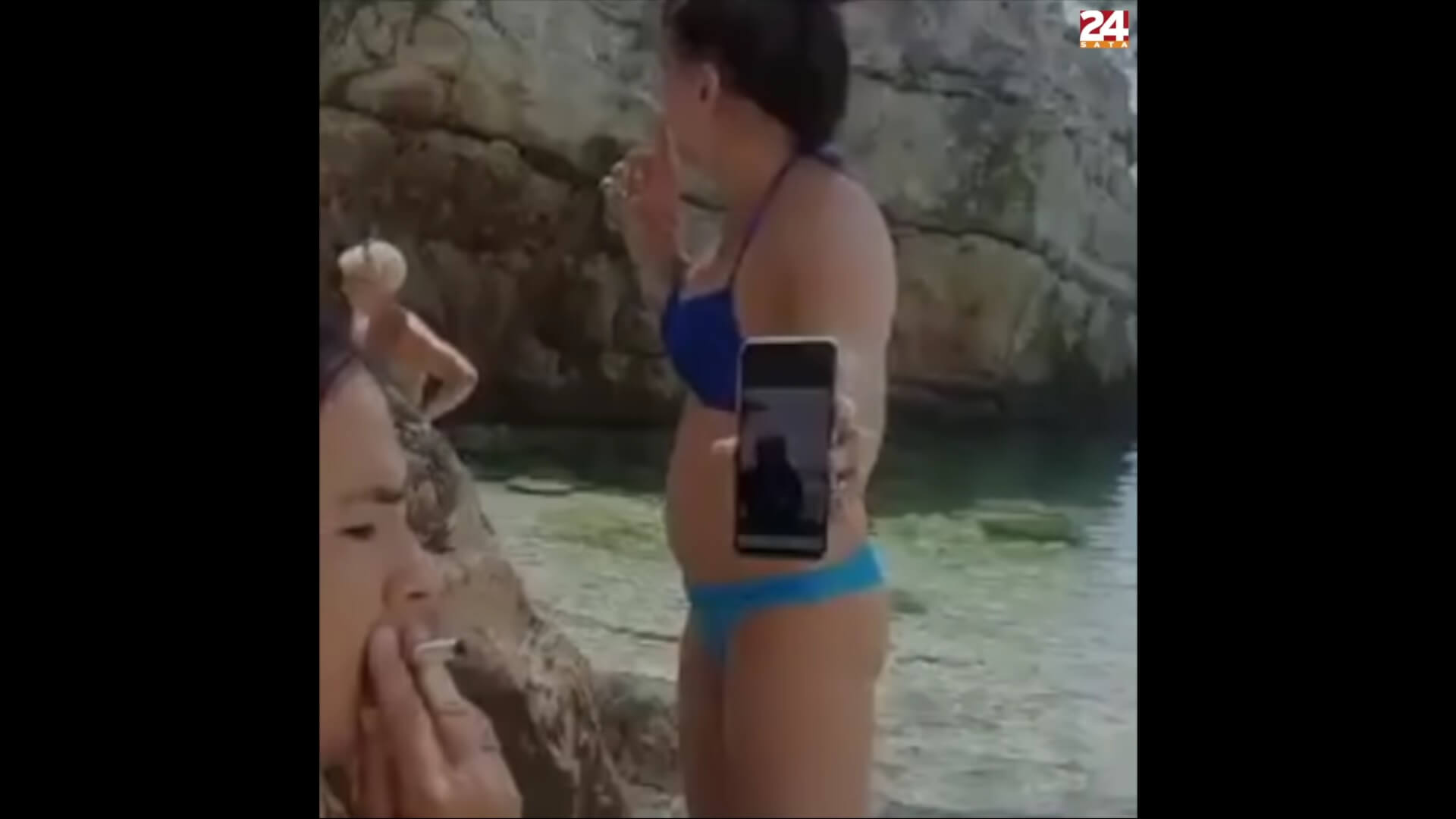
the conversation at the beach, screenshot/ 24sata
Law and order
Following this story, Index.hr's columnist Goran Vojković analyzed the law to clear up the issue of maritime welfare.
„The Maritime Welfare and Sea Ports Law states 'at least six meters from a line horizontally distant from the line middle waters'. But it can be wider, for example, if part of the land that in its nature or use serves to exploit the sea. It can also be narrowed- for instance, if support walls or a public road are close to the sea“, Vojković listed general rules but adding that maritime welfare border is specifically determined.
„So, the coast is free to use where the beach is, in general, six meters. You can come and use it for your needs, such as bathing, tanning, or walking. The land behind can be private, but the coast cannot“, concluded Vojković.
On the other hand, there are ways to limit the use of maritime welfare.
„There are some parts of the coast where you cannot enter. You can enter the marina and walk around it, but only until 10 pm. You cannot enter at all in a shipyard port. Those are the parts of maritime welfare for which the state assigned a concession to someone. The concession can limit or terminate public use“, explained Vojković.
Additionally, the law states that it is possible to have a beach in its concession and limit public entrance. But it needs to be registered, and the prices are so expensive that there are very few beaches like this in Croatia (Drvenik one not included in that small list).
„If someone claims that has a concession and that he/she can exclusively use some part of the coast, he needs to have a proof you can easily check in the register. I repeat, there are very small examples; even beaches in front of five-star hotels are public good“, Vojković pointed out.
And such beaches are filled with deck chairs, food stands, etc. But as Vojković pointed out, on a public beach, you have the right to bring your own deck chair, your own food, and drinks, and you can't be forced to consume content on the beach.
„In short, enjoy the Adriatic coast- with some very small exceptions of exclusive concessions, the entire coastline (including island coast) is free for your use and joy. Nobody can hold a grudge or complain if you came to a bath where they think it's 'their' beach. If someone is uncomfortable, don't debate, call authorities“, advises Vojković.

Pixabay
And the beach is open for public happily ever after
As Jutarnji List reported, the Drvenik case has a conclusion to an intriguing plot. Unhappy with Meštrović's behavior, Dalmatian locals went vigilantly and started writing bad reviews on Google, seeing the villa losing its value and tourists.
„Even though neither the building, nor its surroundings changed since the video was released, the unkindness of the owner was enough to move once-prestigious villa to the lowest grading Croatian places on Google“, says Jutarnji.
A couple of more lessons can be learned for a successful and enjoyable season from this tale.
For owners: present your offer fair in accordance with the law as transparency is the best way for your offer to beat the competition.
For tourists: if you were promised a private beach, but you see locals coming, don't be rude to them and don't attack them. The only one you can really be mad at is your host, who perhaps lied about what they can truly provide.
Learn more about beaches in Croatia on our TC page.
For more about travel in Croatia, follow TCN's dedicated page.
Highlights of the Week: 5 Big Events in Croatia from May 31- June 6, 2021
June 6, 2021 - TCN's highlights of the week. A look at the events in Croatia from May 31 through the selection of TCN's reporter Ivor Kruljac.
From significant political changes after the local elections to the losses and preparations in sport, the week was hyped by a strive for hope in Croatia. But, the tragic murder of Nino Čengić in Varaždin was a painful kick to the stomach. Here is another weekly selection of the news depicting the bittersweet life in Croatia.
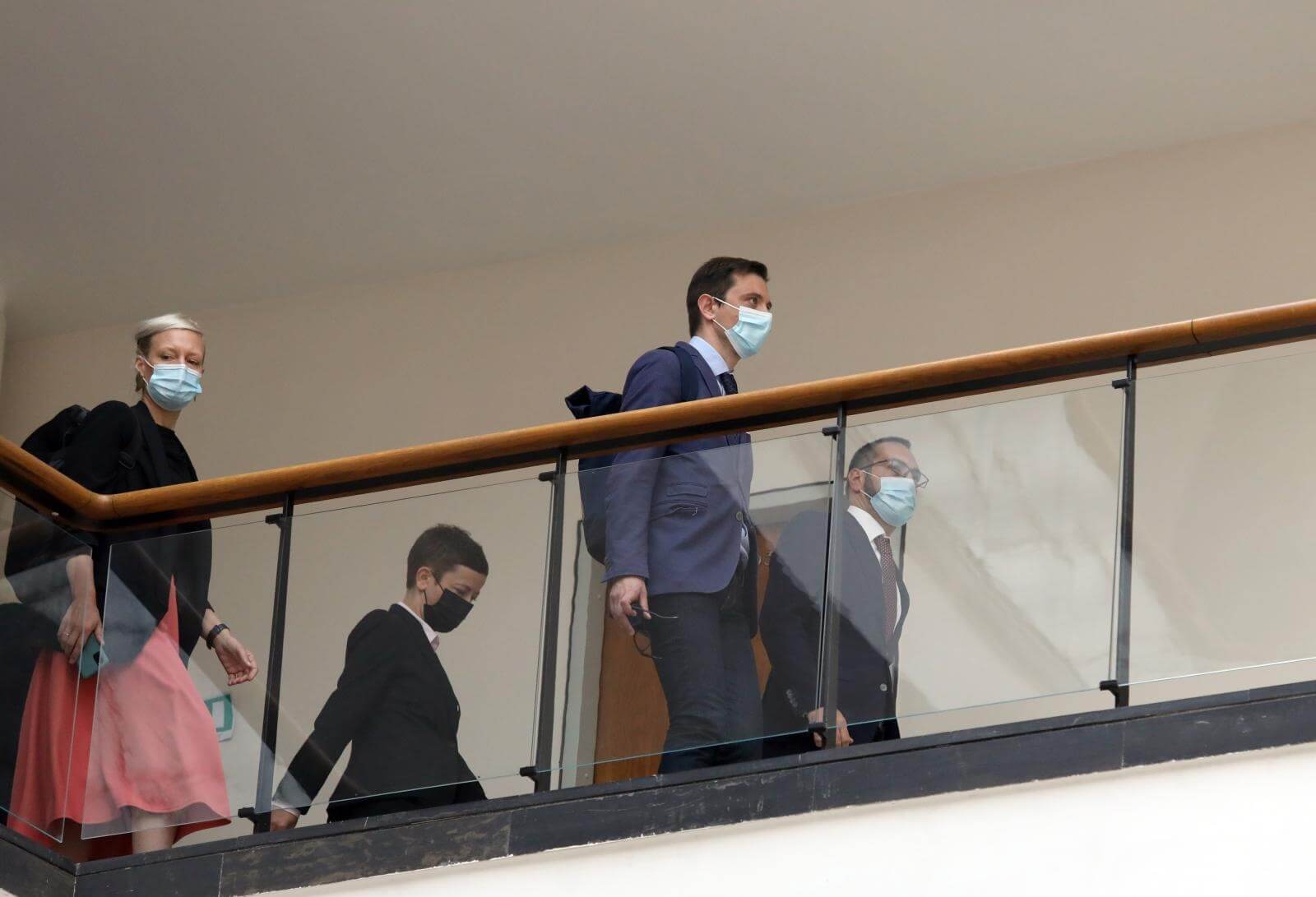
© Patrik Macek / PIXSELL
Highlights of the week: Tomislav Tomašević officially. becomes the new mayor of Zagreb
Zagreb local elections winner Tomislav Tomašević met with Jelena Pavičić Vukičević for an official ceremony of transferring power on Friday, which makes Tomašević officially the new mayor of Zagreb.
Media attention was also caught for the fact that Tomašević was four minutes late to the ceremony because he was waiting for the ambulance on Cibona because a woman fell ill in the middle of the street. But, for the bigger public interest, it's important to note today was the first time for Tomašević to have a detailed view on the financial situation of the City of Zagreb, giving him a clear picture of the debt problem Zagreb has.
As TCN reported earlier, Tomašević told the press after the ceremony that the situation is not good, but there are solutions. Still, so far, no more details were given on the two-thousand-odd-page reports on the 2020 budget execution and preliminary figures. Additionally, the new city assembly would hold the founding meeting on 17 June.
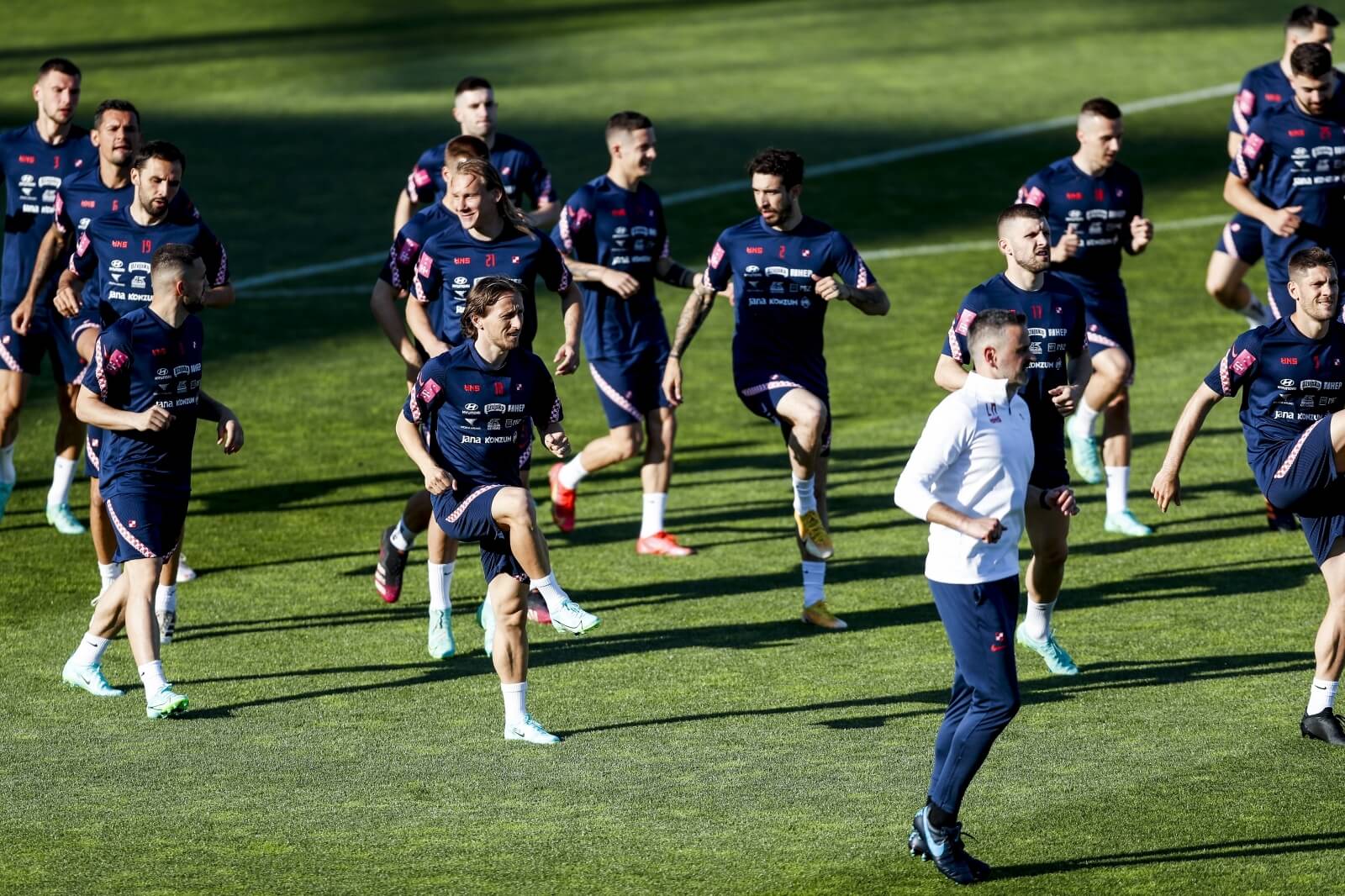
© Slavko Midzor / PIXSELL
Highlights of the week: Zlatko Dalić on Croatian National Football Team
The Croatian National Football Team is preparing for the friendly clash with Belgium. As reported by TCN, Zlatko Dalić faced the press on Friday ahead of the match.
„I am satisfied with everything except the result. We had minor injury problems. We did the rest as expected, but the draw with Armenia left a bitter taste. In that game, we had to win 4-0 or 5-0, not draw 1-1. I am dissatisfied with this result. Plus, we created 5-6 percent chances, and we didn't do that in three games in a row at the beginning of the World Cup qualifiers against Slovenia, Cyprus, and Malta. We were nonchalant and irresponsible and did not realize them. We were not specific, and that is a minus“, said Dalić to the press.
Dalić also pointed out that the national team is aware of its obligation to the Croatian people. He spoke about the problems in the national team, the pros and cons of the draw against Armenia, and the expectations from players who are dissatisfied with their status. One of them is Andrej Kramarić, who, after 20 goals scored in the Bundesliga this season, is not safe among Dalić's starters. A few days ago, he advised the media to ask Davor Šuker what he would say after such a season.
Expectionsare big ahead of the EURO championship, and no doubt fans will pay attention with close interest.
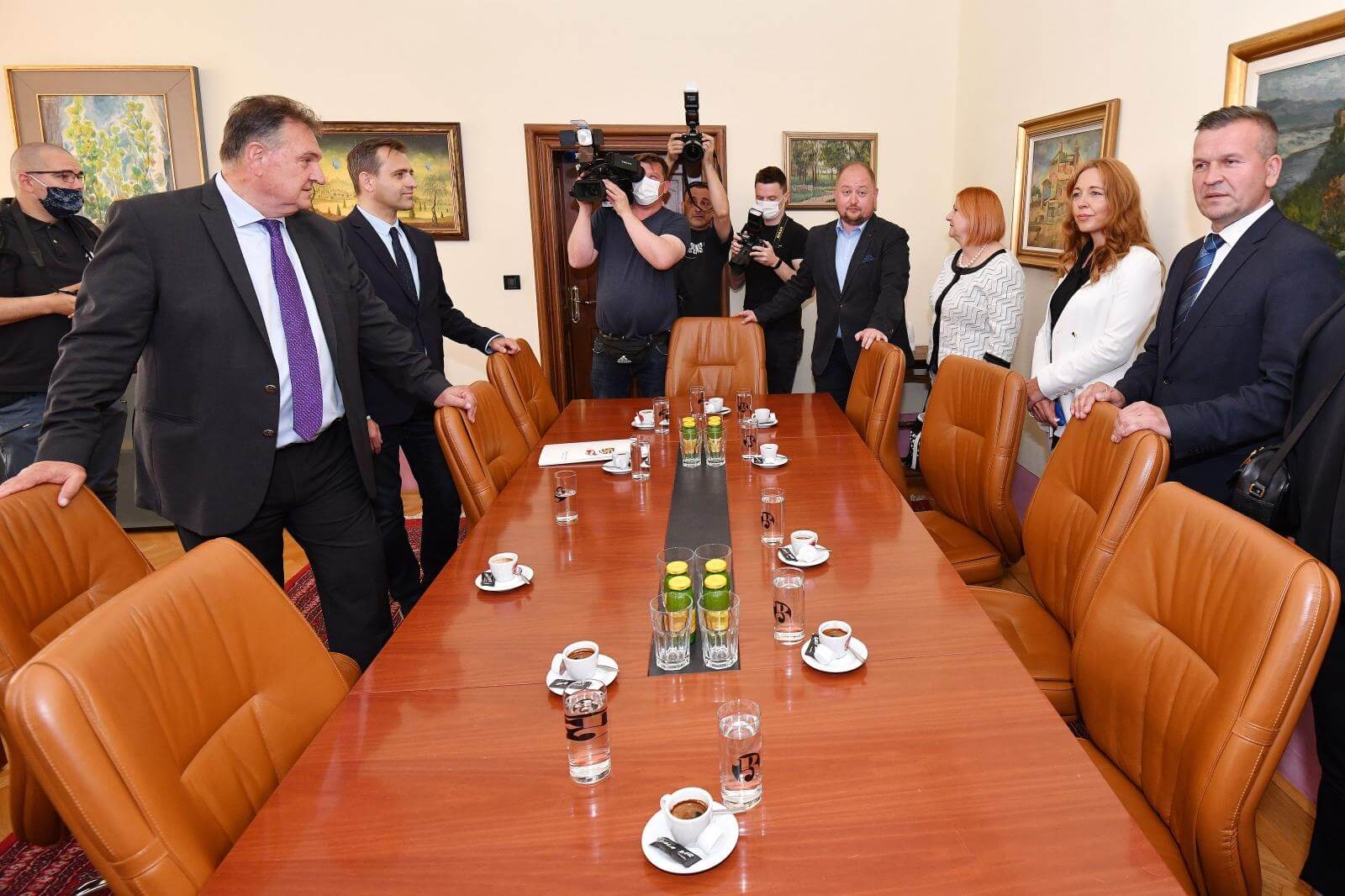
© Vjeran Zganec Rogulja / PIXSELL
Highlights of the week: Anđelko Stričak, new prefect
The power transfer ceremony on Friday also took place in Varaždin where Anđelko Stričak defeated current Varaždin prefect Radimir Čačić.
„The victory is well deserved. In the past nine years as the president of Varaždin county organization of the Croatian Democratic Union (HDZ), and in six years as a member of the parliament, I've been to every corner of Varaždin county and talked to everybody. I heard the needs of our citizens, and I tried to solve them by cooperating with coalition partners on every level. Of course, I'm not the best, most capable or most perfect, but I will try with my team to give my best that everybody in the county feel changes for the better“, said the new Varaždin County prefect Stričak, as reported by Varaždin county's official website.
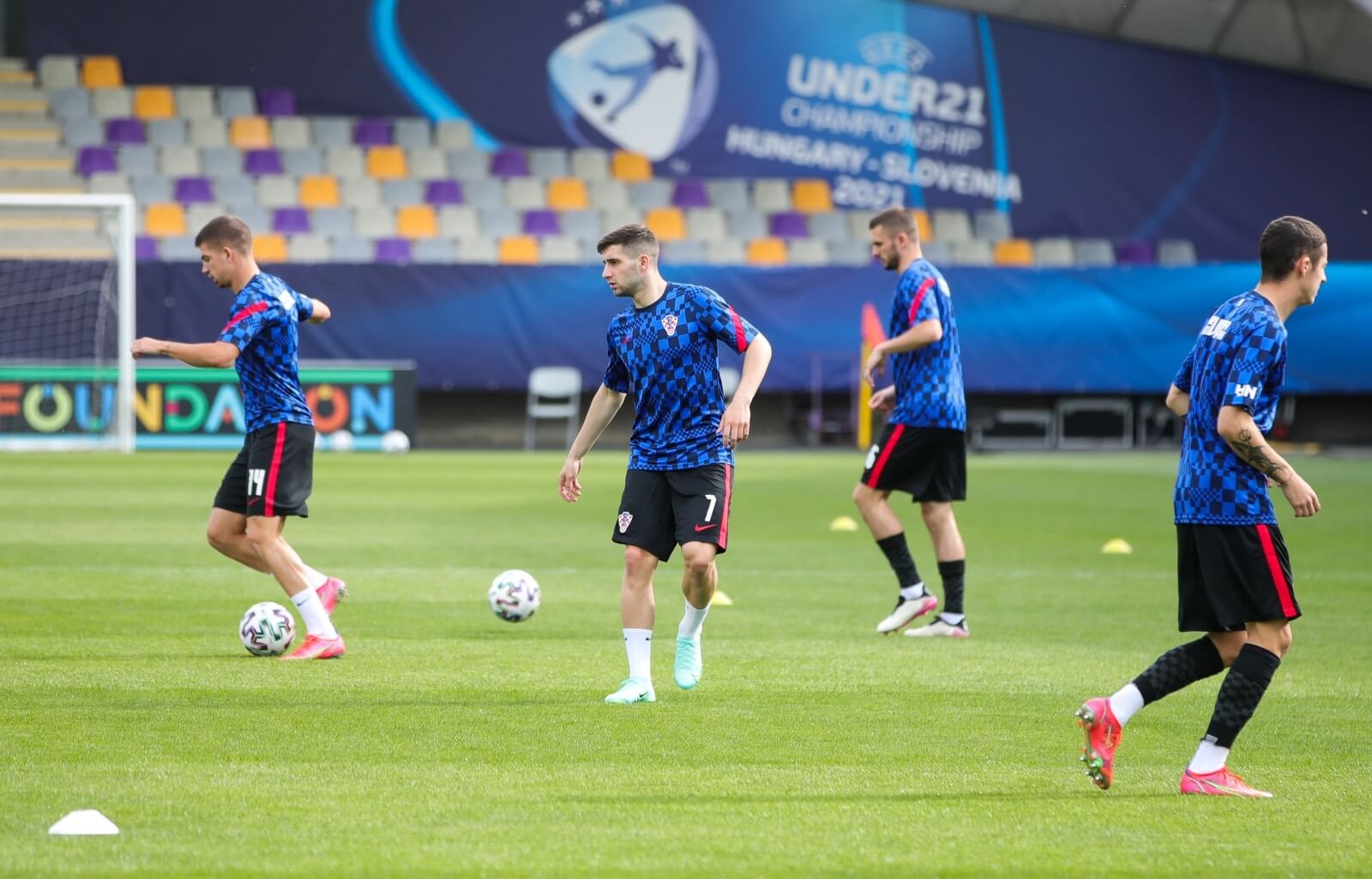
© Sanjin Strukic / PIXSELL
Highlights of the week: Croatia Loses to Spain in the Under-21 European Championship
Spain was better than Croatia after extra time in the Under-21 European Championship quarter-final in Maribor on Monday. The match ended 2:1. As reported by TCN, Croatia was solid in the first half and threatened the Spain goal on a few occasions. Despite Spain's high pressure, Ivanušec had a chance from 20 meters in the 7th minute, and in the 23rd, Bradarić's shot was blocked by the Spain defense. Spain retaliated with a Diaz shot from 20 meters, but Croatia's defense made it difficult for them to do much more.
The young Croatia national team fought against Spain for a spot in the semifinals.
Igor Bišćan's side met Spain at Ljudski Vrt stadium in Maribor.
"The guys are aware that we have a great chance, they are motivated to do something, and we are all around them to give them that chance and be supportive. They have quality," Bišćan announced before the match. 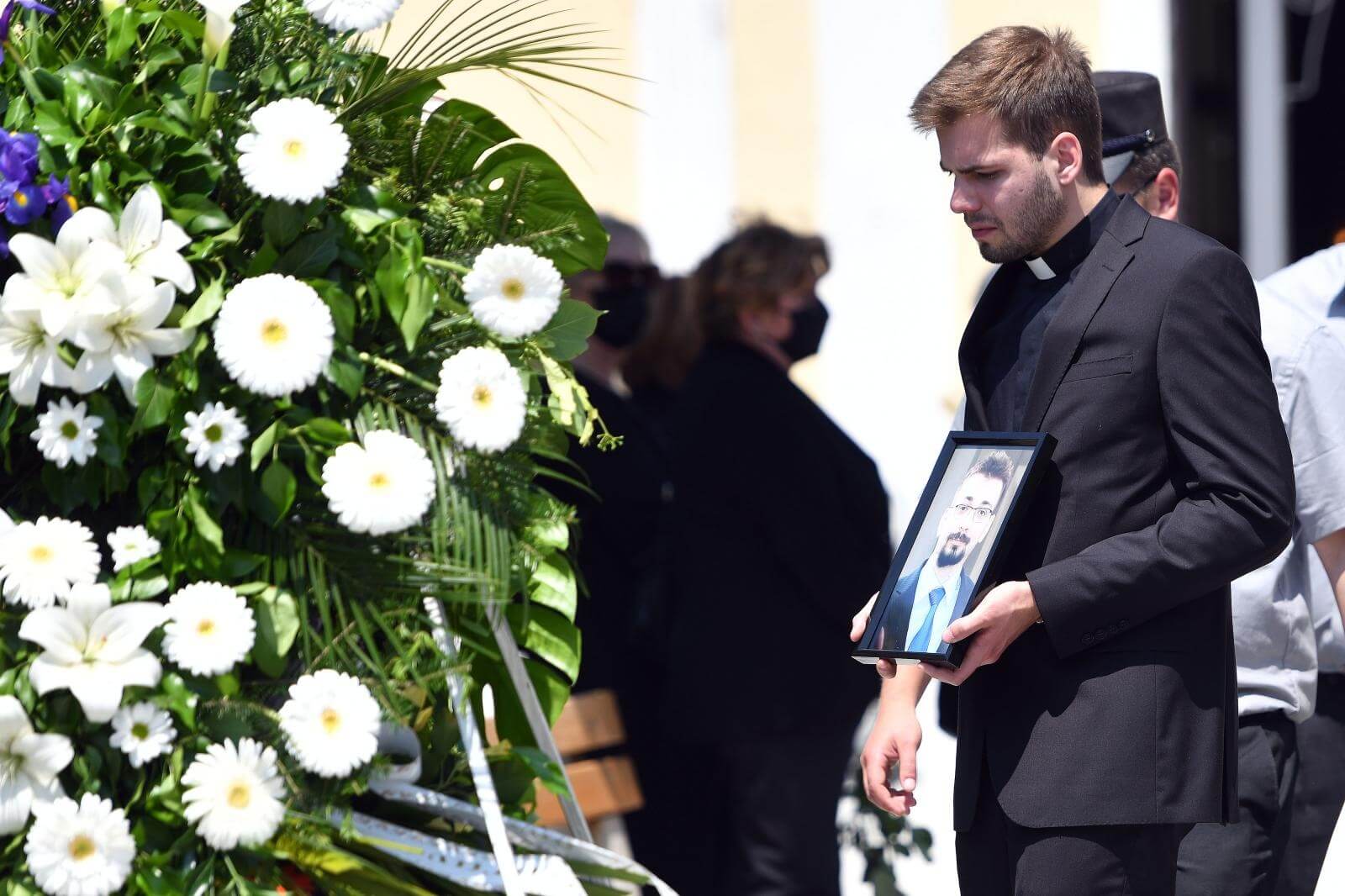
© Vjeran Zganec Rogulja/ PIXSELL
Highlights of the week: Nino Čengić funeral in Varaždin
The Funeral of the English professor Nino Čengić who passed away last Sunday, was held on Wednesday. Nino Gengić, a substitute English professor in one Varaždin school, was brutally beaten with bats and chains in front of the local club in Varaždin called Kulturana. He was 35 years old.
As Jutarnji List reports, four suspects aged 24-29 are currently in custody while the investigation is ongoing as to what lead to this attack. Suspect's apartments were searched, and one suspect illegally possessed a considerable amount of ammo and fire weapons to match. All suspects were previously known to the police for troubling behavior, and the most tragic was the fact that 15 people witnessed the beating, but nobody stopped it.
To learn more about Croatia, have a look at our TC website.
For more about news in Croatia, follow TCN's dedicated page.
New Zagreb Mayor Tomislav Tomašević: Sandra Benčić (Mozemo!) On First Moves
June 1, 2021 - With the new Zagreb Mayor Tomislav Tomašević soon coming to the office, Sandra Benčić of the green-left platform Mozemo! (We Can!) spoke to Index.hr about the first moves of the new administration.
Following intense post-first round campaigns in Zagreb for the second round of local elections, Tomislav Tomašević is the new mayor of Zagreb. Additionally, Tomašević's green-left coalition Mozemo! earned 23 seats in the City's assembly, and if the previously announced support of the Social Democratic Party (SDP) that has five, Mozemo! will have the majority in the assembly.
The new mayor is expected to take his seat by the end of this week, and as Index.hr reports, Sandra Benčić, the Mozemo! MP says that ZG Holding chief and directors can be removed from their position immediately.
However, first and foremost, the earthquake damages seem to be taking the lead.
„The most urgent thing is to prepare documentation for the reconstructions of kindergartens, schools, and institutions in the city ownership that were damaged in the earthquake. We have to do that as fast as possible because the deadline to pull money from the EU Solidarity Fund is June 2022. I'm afraid there will be a fiasco regarding how much will the State pull from the fund, but we can only take the money for estates in the city property, and the damaged kindergartens and schools are our priority“, told Benčić for Index.hr
She added that they plan to start an Office for Zagreb Reconstruction and establish mobile teams which will help citizens to fill in documentation and requests for the reconstruction of damaged homes.
Regarding the statement about the fiasco with the State pulling money from Solidarity Fund, the conflict with the government was sparked yesterday when PM Andrej Plenković talked to the press regarding Tomašević's victory. He said he didn't congratulate Tomašević yet, but he will and that he expects good cooperation.
„I see that Mozemo! is paraphrasing my message from 2016 when I said that we are changing Croatian Democratic Union (HDZ) so we can change Croatia. They say they are changing Zagreb to change Croatia. Clearly, they have something against this Croatia“, said Plenković, sparking controversy.
And Benčić is not the one to remain silent on such statements.
„Yes, we do have something against this kind of HDZ and evening HDZ with the State. They are not the State but an interest group that trapped our country. We want to see the country returns to all its citizens and that, of course, hurts them to the level that the prime minister allows himself these kinds of statements which, if they weren't malice, would be at minimal, unsmart“, said Benčić.
With the biggest number of votes in the history of mayoral elections in Zagreb, Benčić continues they are ready to justify this trust, and they start with work immediately.
„We are going with the financial revision of City's administration, restructuring City offices. We will do it step by step and connect offices while ensuring that functions and services need to deliver to the citizens. It should be noted that Zagreb used to have fewer offices, 17 until 2000 and then offices start to grow exponentially, only to put politically suited people to positions and raise their payments“, explained Benčić.
And the new Mayor Tomislav Tomašević also gave an interview on Monday. As Jutarnji List reported, Tomašević also talked about his plans to improve Zagreb and fulfill his promises, particularly with so many earned votes.
„This big trust is also a big responsibility. Citizens can expect that we will lead by example from the start. The city administration and authority will be based on three things: decency, modesty, and being at the citizen's service.
He also added that Mozemo! is considering filing a lawsuit against Miroslav Škoro for the filthy instigating campaign, as Tomašević and many other public figures described it.
„I wouldn't like this to happen to anyone anymore on any other elections in Croatia, regardless are we talking about a candidate from the right, left or center," commented Tomašević.
Although no direct link can be proved at the moment, Škoro's rhetoric could've been the fuel for the attacker that set fire to the Mozemo! election headquarters at Zagreb Contemporary Museum on the election night saying to the gathered that „they are communists“ and how he will „kill them all“, on which T-portal reported.
The elections are over, but will Zagreb continue to celebrate in such a majority as it did on election night? This is something only Tomašević on his new function can answer in the following months and years.
Learn more about Zagreb on our TC page.
For more about politics in Croatia, follow TCN's dedicated page.
Highlights of the Week: 5 Big Events in Croatia from May 17-23, 2021
May 23, 2021 - TCN's highlights of the week. A look at the events in Croatia from May 17 through the selection of TCN's reporter Ivor Kruljac.
From Local elections to released details of the Euro 2020 championship strategy to the release of Zoran Mamić. Add Besana company attempting to boost its position in Croatia, and you have a truly exciting week. Here are the highlights.
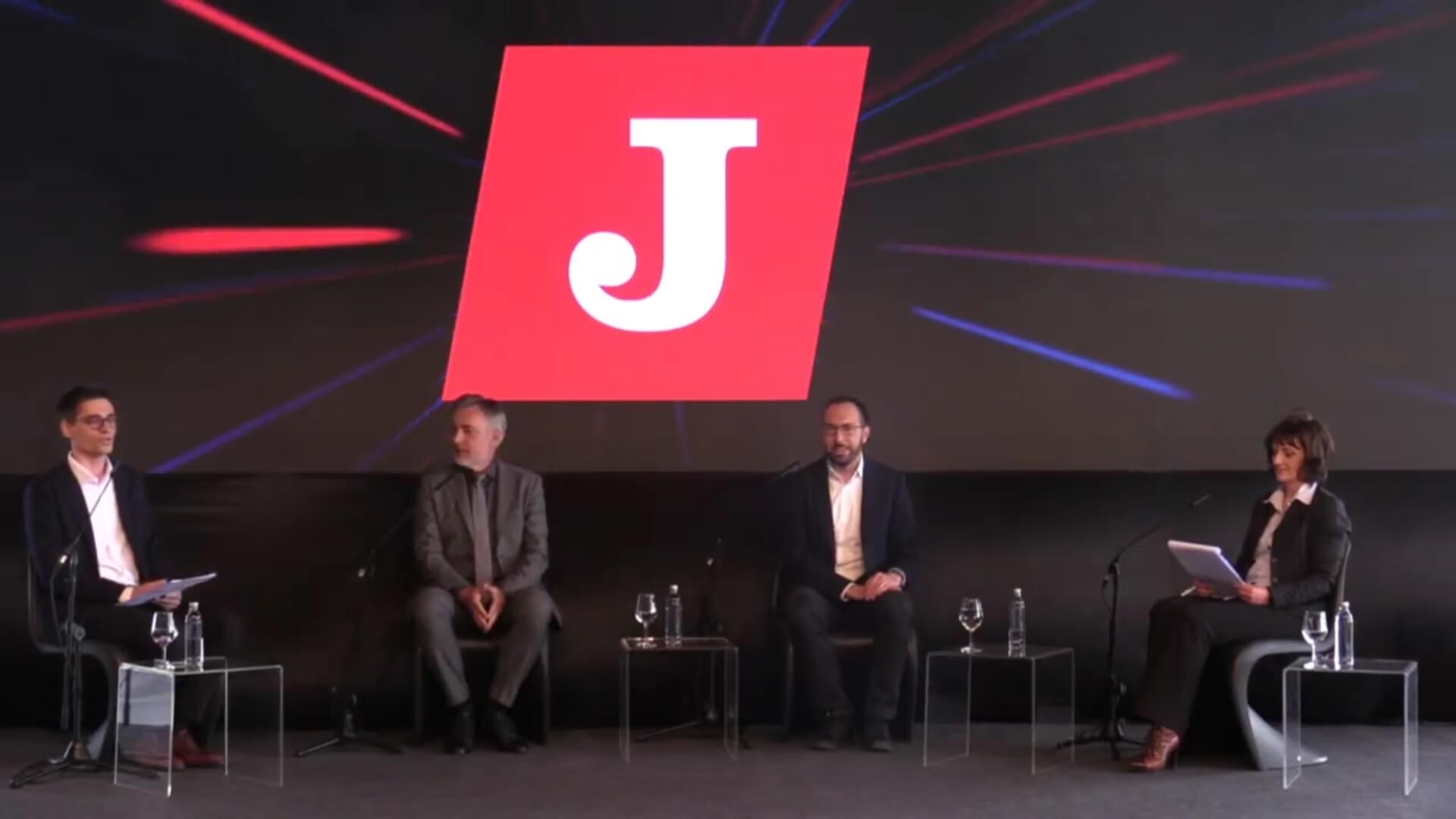
screenshot / Jutarnji list
Highlights of the Week: Zagreb mayor candidates Tomašević and Škoro had a debate ahead of the second round of elections
Jutarnji List invited on Friday mayoral candidates Miroslav Škoro (Homeland Movement), and Tomislav Tomašević of the green-left party We Can! to debate ahead of new elections.
In the first round of the elections, We Can! earned 147.631 votes (45.15%), while Homeland Movement had 39.789 votes (12.16%). Before officially entering the second round, Škoro declared Tomašević and We Can! party extreme left and pushed the narrative of elections as an ideological referendum among right-wing and conservative circles. Škoro also accused We Can! of being foreign mercenaries working for a philanthropist George Soros or wanting to revitalize Yugoslavia and Škoro's associate Zlatko Hasanbegović earlier in the week called We Can! a lesbian syndicate. Additionally, Nikola Grmoja (Most Party) stated for N1 that We Can! are Soroshians and accusations of their weird name-calling saw a random generator on the internet designed to mock these terms by random options of name-calling. Meanwhile, Tomašević continued the campaign talking about solutions to the problems Zagreb is currently facing but occasionally makes remark accusations while keeping it clean. The debate on Jutarnji List saw similar rhetoric from both candidates in their public performances, and overall, at least for the people of Zagreb, May 30 can't come soon enough.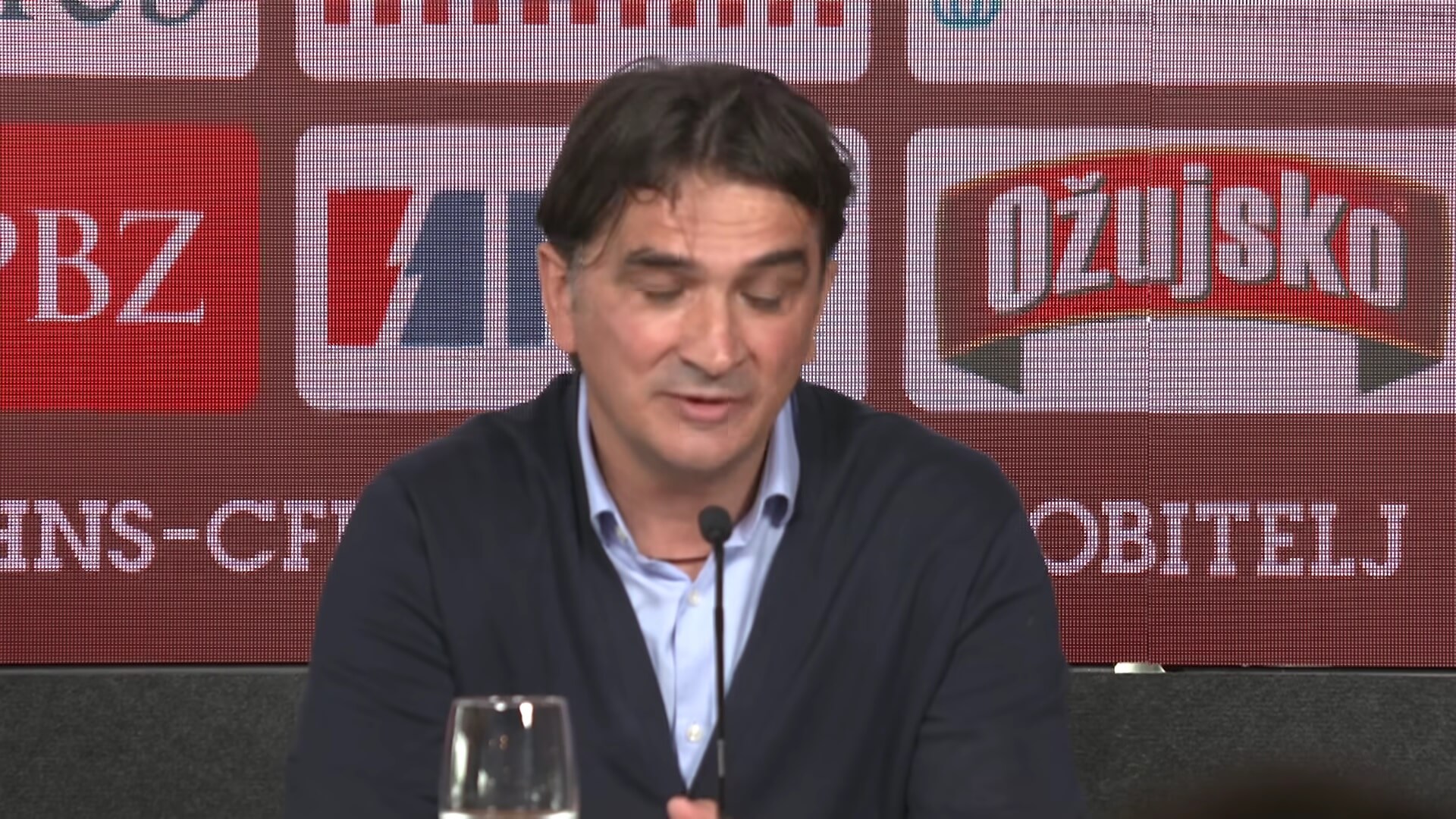
screenshot / Hrvatski nogometni savez
Highlights of the Week: Zlatko Dalić announces preliminary EURO 2020 Croatia player list
Coach Zlatko Dalic has announced the preliminary EURO 2020 Croatia player list on Monday. Luka Modrić (Real Madrid), Marcelo Brozović (Inter), Milan Badelj (Genoa), Mateo Kovačić (Chelsea) are some of the names that made it on the list.
The Croatia national team has entered the last month of preparations for the European Championship, which opens on June 13 at Wembley against England at 3 pm.

screenshot / RTL
Highlights of the Week: Zoran Mamić released from custody
Former Dinamo football coach Zoran Mamić will remain free while in Bosnia and Herzegovina; however, he will have to report to the police once a week, and his personal documents have been temporarily confiscated, the court in Bosnia and Herzegovina decided on Wednesday.
Zoran Mamić was arrested early Wednesday morning by officers from the State Investigation and Protection Agency (SIPA) based on an arrest warrant issued against him in Croatia.
After that, Mamić was handed over to the court in Sarajevo. Judge Branko Perić determined his status, including his citizenship of BiH. The judge ruled that Mamić would remain free with precautionary measures and was ordered to give in his personal identification documents.
The court did not discuss the matter of Mamić's extradition, considering that Croatia has not sent a formal request yet.
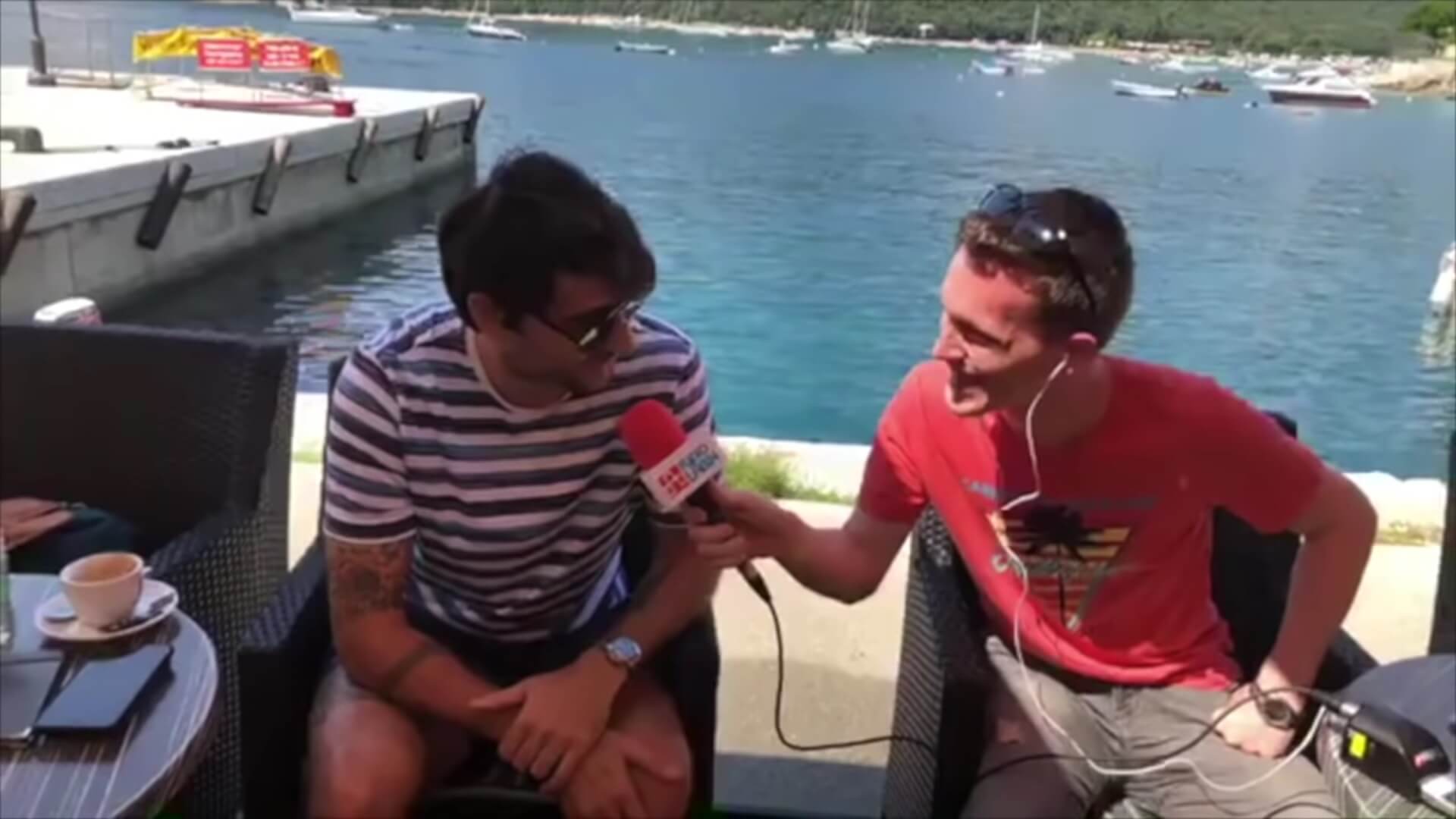
screenshot / Radio Labin
Highlights of the Week: Former football player Vedran Ćorluka new Croatian assistant coach
The new Croatia national team assistant coach Vedran Ćorluka was officially presented by coach Zlatko Dalić at a press conference in Zagreb ahead of EURO 2020.
Although there was a lot of speculation, Croatian football player Vedran Ćorluka officially announced the end of his playing career and was confirmed as the new Croatia assistant coach on Monday.
"I did not plan it, but the moment has come," said Ćorluka at the press conference at which coach Zlatko Dalić presented the list of players for the upcoming European Championship.

Pixabay
Highlights of the Week: Italian company Besana strengthening position in Croatia
The Italian company Besana, which is otherwise one of the strongest European companies in the production and processing of nuts and dried fruit, is working to further strengthen its position here in Croatia.
As TCN reported on Monday, the Italian company Besana currently has 50 subcontractors located in Croatia, from whom it buys about 100 tonnes of hazelnuts per year. But, much more can be expected if their plans go well.
To learn more about Croatia, have a look at our newly launched TC website.
For more about news in Croatia, follow TCN's dedicated page.
Croatian Poet Criticises Petition Against Culture Ministry's Tender for Support
May the 14th, 2021 - As the new public tender by the Croatian Ministry of Culture and Media was met with the outrage by writers community, a Croatian poet ranting about writers ranting about the culture ministry is quite the turn of events. TCN reporter and slam poet Ivor Kruljac approves but also debates parts of the petition launched against the aforementioned ministry.
The ever-unfortunate literary scene in Croatia, which is sadly not represented as it should be neither in Croatia nor abroad, took heavy blows as a result of the coronavirus pandemic - much like the majority of other sectors. Popular literary events such as Interliber, and many more fairs ended up being cancelled, the blow to this specific branch of cultural industry that generally receives poor investments and poor profits thus became even more challenging.
To jump to the rescue, The Croatian Ministry of Culture and Media issued a public tender for both writers and translators. As Jutarnji list reported, the tender for the provision of financial aid to authors and translators for the best books and translations in 2019/2020 introduced a little novelty along with it.
''With the commissional value of the books, which in previous editions [of such tenders] was the only criterium of assigning financial support, this new tender also has a numerical valuing of literal works“, reported Jutarnji.
This numerical valuing is assessed by the number of awards, the level of participation in literal manifestations and festivals, and critical responses.
''Forty points goes to the winners of the awards: Janko Polić Kamov, Fric, Ksaver Šandor Gjalski, Edo Budiša, Vladimir Nazor, Kvirin, Judita etc. While rewards such as Post Scriptum, going to Fran Galović, Sfera, Tea Rimay Benčić etc, are worth only half of those points. Fifteen points can be received by participating in some festivals and manifestations, while the lower rank of such events is worth ten points. Ten points are also added for reviews in certain media while for others (this sometimes includes expert magazines), the critical review is worth only seven or four points,'' wrote Jutarnji List.
The literary community rebelled, and they started a petition called "The Right to Quality" against these propositions, demanding for the tender to be cancelled, which is supported at the time of writing this article with 233 signatures of Croatian writers and other concerned citizens.
''Public funding support for the best work has significant importance for the number of authors, which is why the authors themselves fought for the existence of this type of support with the initiative ''The Right to a Profession'', reads the text of the petition. The petition also welcomed the description of the criteria to improve transparency but determines that the quantification of literary value, which is a qualitative category in itself, ''disables the authors of a high aesthetic value to get the support their work truly deserves.''
Additionally, playwriters aren't even mentioned in this tender (despite grading rewards which are reserved for playwrites, poets, and essay writers, who are also in a bad position), and the winners of some of these awards will be known only after the ministry's tender closes.
The Culture Ministry could make many, many improvements, but, having the (mis)fortune of being present on the writing and more particularly, the poetry scene for the last six years (publishing and performing at various events, publishing short stories, and for better or worse, even being covered by the media for my work) I can't say, as a Croatian poet, that the arguments are really on the side of the writer's community either.
Here are several arguments regarding to petition (in bold), as well as counter-arguments (not in bold) from the most annoying Croatian poet in the country. I have no doubt my other colleagues will most likely hate me for it, but you, the reader, are free decide what seems to have more sense. Given the fact that Croatia is a democracy, the pluralism of opinions and civilised public debate is always welcome. Despite the fact that I will not sign the petition, you should sign it yourself if you feel it to be the right thing.

pixabay
Assigning the funds by the number of sold copies of books borrowed in libraries is problematic as it's not showing the work's actual quality. Readership is affected by various factors, which don't always come because of a book's quality, but from the previous visibility of the author and the budget the publisher has.
Well, how exactly do we determine the value of literary work? I'm no literature academic, and literary academics don't really communicate these ''legitimate criteria that makes a good book'' all that well. Additionally, these books which are labelled as being good, are so boring to the average reader, and then the reader often gets insulted by ''the intellectuals'' for reading such garbage. When you look at other arts, such as music, you can see that music academics favour some music over other types but then again, some music, known as pop, is made for common people and the artists don't focus on achieving some melodic masterpiece but rather to entertain their audience or send a brief message.
Why do writers who do the same get so ridiculed by academic circles?
Why are they ignored by Croatian publishers? Why do writers then insult the readers, making literature more repulsive to the audience, and then get shocked when there isn't a lot of reading done and consequently not much money to be had from the book business? This also makes the Croatian literary offer very poor, and often its style and topics end up being very similar as a result of this unexplained criteria. In return, there's very little Croatian crime fiction, SF, fantasy, love stories, and other genres, and the readers turn to foreign writers in search of such stories (Jo Nesbo, Stephanie Meyer, J.K Rowling. Lois McMaster Bujold and many, many more). Such writing makes them popular and also visible. That's the answer as to whose work gets most bought and borrowed in Croatia, give them the cash!
Poets are at a disadvantage from the very beginning. There are far fewer rewards for poetry than there are for prose, which means the poets can do nothing else but achieve fewer points. There's also less poetry writing in general, which means a lower amount of points coming from critical reviews. Child authors, essay writers, and comic book artists are in a worse position than poets as well.
The above gets right to the heart of the point from the perspective of a Croatian poet. But, why is it like that, exactly? Before the coronavirus pandemic took the world by storm, there were so many poetry events filled with poets performing and the audience coming to watch them perform. Be it slam poetry, open mics, or some other poetry events, be it in the libraries, bars, or clubs, it was apparent that Croatia doesn't lack poets, nor does it lack an audience for it. These events were in the majority and were always very open to newcomers.
Social media is also filled with people, either quoting their favourite poets or posting their own, personal poetry. So, why are there no more rewards and why is there not more extensive interest from the publishers (with some honorable exceptions) to invest in poetry and keep up with the trends? Culture journalists working for various media outlets should focus more on poetry as well, and coming from TCN's perspective, poetry articles really do attract an audience, as we saw on March the 21st (assuming that reporting on poetry, an important artistic and historical heritage of the linguistic form, isn't rewarding enough in itself).
Evaluating work by the number of reviews is problematic as books that are more visible, in principle, receive more reviews. The authors whose books are published by smaller editors, who have fewer resources to invest in their promotion, are in a less favourable position. In addition, evaluating the number of reviews where three negatives are worth more than two positives is also illogical in order to evaluate the quality of a piece of work.
On top of that still, the amount of points based on the media site on which the critic is published seems to be very random. The result is the unusual circumstance in which, if the same critic writes two reviews of two different books and publishes them on two different sites, depending on where the critic published the review, one writer will receive 10 points, and the other one four even if the first review was positive, and the other one - negative.
Again, the beauty is in the eye of the beholder, and there's no empirical way to determine which book is a good book and which isn't. If there were such a righteous empirical way of determining the quality of a book, we wouldn't have the difference between positive and negative reviews. Bad would always be bad, and good would always be good, and there wouldn't be any debates.
Take a look at the empirical field of physics and the definition of friction; ''Friction is a force between two surfaces that are sliding, or trying to slide, across each other“. This definition will always be the correct definition regardless of culture, personal preferences etc. Furthermore, positive reviews, even if done correctly by the rules of the still ''unclear criteria of literature scholars“, that wouldn't be set in stone.
When the poetry volume ''The Flowers of Evil“ by Charles Baudelaire was originally published back in 1857, the academics of the time condemned it as immoral and wrong, and of a poor quality, but today it is celebrated by the successors of that same academia, as one of the best poetry books ever. So, no writer should even care if the reviews are good or bad in terms of quality. That being said, reviews will raise a publication's visibility, attract readership, and inspire critics to write more reviews (combined with the PR done by the publisher). All of this shows the writer's ability to spark a reaction with their work. As such, whether a review is good or bad is irrelevant, but reviews do show the impact and public importance of the book, and therefore it seems to be quite the right direction to go in assessing books by the ministry.
That being said, the tender benefiting the publishing of one review in one media outlet over another is problematic if it doesn't better elaborate why some media outlets are favoured over others in the tender.
Furthermore, big publishers publish more books in larger quantities, and invest more in their promotion, and they already have a name that attracts the press. That is absolutely true. But, today, with the development of social media (which allows promotion without high expenses), and while journalists strive to discover new things, new names, new approaches - small publishers have never before been in a better position to push themselves and the writers they represent out into the public arena and develop and expand to the level of ''big players“. The only question is - do they have the will to do it?
It's not adequate that the esthetical value of a book is evaluated by attending events and manifestations. Festivals more often call upon already established authors who then have an unfair advantage. Additionally, every organiser mostly invites his own authors who again have an advantage over the others. The tender doesn't value international festivals, which causes a paradoxical situation in which the promotion in the organisation of the publisher is evaluated, but it's not evaluated when the promotion happens during an established international festival.
The term ''the presenting of the book“ is problematic for multiple reasons. First and foremost, the majority of these festivals don't present the book (and its a problem to prove that by participating in these festivals, the book was actually presented). Last, but not least – this is discriminatory towards authors of a weaker state of health, who are older (with the risk of the novel coronavirus still large) or busy with family and work obligations and are unable to travel.
Festival organisers do discriminate against writers, but whose fault is that exactly? Are these festivals organised by the Republic of Croatia, by the Ministry of Culture? If they are, then it's problematic, but if these festivals aren't organised by the ministry, then this whole petition is barking up the wrong tree. If the festival organisers aren't willing to be more fair and open to new names, then we, the writers, need to show solidarity with our colleagues and negotiate with festival organisers to invite our colleagues who are less presented to participate. If you're a writer/publisher seriously concerned with this issue, but you're among the lucky ones who get invited, use your position to help others out a little.
On the other hand, it's too bad international festivals aren't valued in the tender, and the ministry should work more in helping Croatian writers become more visible on the international scene. Regarding ''vulnerable writers, the old, the sick, and those too pre-occupied to attend'', they should be presented by their publishers, and an additional problem is that often the expenses of travelling to festivals aren't covered for the writer, and their participation costs money.
Awards such as the VBZ award, the Dragutin Tadijanović award assigned by (HAZU) etc aren't mentioned in the tender. Relevant international awards Croatian authors frequently are awarded, such as the Bridges of Struga (Macedonian award), the European Union Literature Award, the European Poet of Freedom, etc, are also ignored.
Every single award, be it Croatian, European or international, should be valued in the tender, but VBZ really shouldn't be. For those who don't know, the VBZ award is the annual award for the best-unpublished novel, and the winner sees their manuscript published, and there is a financial 100,000 kuna prize that goes with it too. With a huge monetary prize and the chance to have that piece of work published, why would VBZ be part of a tender whose goal is to financially help those writers who have run out of money?
The bigger problem is the question of how fair are these awards in the first place. Are they transparent? Are there no biases from the judges appointing these awards? Interestingly enough, there used to be an award called ''Kiklop'', which was given to the most purchased book in Croatia, but was cancelled in 2009 because the winning book by Nives Celzijus (about what's it like to be the wife of a Dinamo footballer) was considered by writing community to ''not be intellectual enough''. When in reality, for a book that can appeal so much to the Croatian readership, in a country that doesn't read much, such rewards should still be respected.
The final item of the tender that tries to consider the books that went unnoticed isn't going to accomplish too much. From the whole tender, it's visible that the emphasis is being placed on the work that received the most media attention and follows the old principle - The more attention something gets, even if it isn't good attention - the better.
Again, books should be visible to the public, and visibility should be awarded. The majority of publishers seem to see the distribution of a writer's work as their only job, and then they're surprised when despite distribution, the books just sit there not being snapped up by eager readers. Knock on doors, contact people, contact the press, everyone. Prepare a decent press release. Scream from the rooftops that you published a book from the top of your lungs and afford your writer the attention their work deserves. With the aforementioned development of social media, there's truly no excuse to be lagging in that respect today. Then, you'll get the media attention, and half of this tender would not be problematic at all. The problem is the policy of publisher's work and not the criteria by the ministry for this particular item.
Overall, the Ministry isn't without sin in this saga, but the Croatian writing community (particularly publishers, and event organisers) also needs to act differently to benefit the writers themselves, especially the new generations (and poets, stop forgetting the poets!).
Poets and writers deal with language, and you can learn more about the ins and outs of the Croatian language on our TC page.
For more about culture in Croatia, follow TCN's dedicated page.
Human Rights in Croatia 2020 Overview: Serbs, Roma People, and LGBTQ Hate Speech Targets
April 16, 2021- The Human Rights in Croatia 2020 Overview report by Human rights house Zagreb shows hate speech and poor living conditions of Serb returnees and Roma people still being problematic. The judicial system and the lack of a legal frame for civil society development remain problematic too.
In a battle against the Coronavirus, many agree and fear that human rights were put in second place, triggering the debate of security vs. liberty and justification of limiting movement, work, etc.
But human rights and their respect in Croatia was an issue, long before Covid-19. As Jutarnji List warns, the situation is not good.
Croatia doesn't have a defined politics of making a supportive environment for the civic society development. Citizen participation in decision making is still relatively weak and the judicial system is a special problem," says Jutarnji List referring to the new report by Human Rights House in Zagreb titled „Human Rights in Croatia: 2020 Overview“.
Regarding the judicial issue, a specific example can be found in the ever-controversial "Za Dom Spremni!"(For the Homeland Ready) salute which is recognised as a fascist salute and punishable by law but it's tolerated as part of the song „Čavoglave“ by Marko Perković Thompson and can frequently be heard during his concerts both by the singer and the audience.
„Circumstance that the salute is part of the song doesn't change the fact that it's an ustasha (Croatian fascist) salute that symbolizes criminal Naci-fascist ideology and is the violation of article 39 of Croatian constitution that prohibits any call or encouragement on national, racial or religious hatred or any form of intolerance“, continues Jutarnji List.
Still present in public space, hate speech in Croatia is also very alive on the Internet, with the Serb LGBTQ community and Roma people being the prime targets. As Jutarnji reports, last year's research show this as well as the lack of appropriate response.
„Children and adolescences do not learn enough about human rights, equality, and solidarity, given that civil education is conducted as one of six intercourse themes in elementary and high-schools. Such approach to civil education does not secure enough time in the curriculum for quality development of civil competence of pupils“, concluded for Jutarnji List Human Rights House in Zagreb.
Educational segregation for Roma people, isolated Serb returnees migrant treatment controversies, C+ grade for LGBTQ travelers
The article also adds that Roma people in Croatia are still facing many obstacles in achieving their rights, which include employment, access to services, and adequate living standards, and there is still segregation in the education system too.
Furthermore, many Serb returnees live in undeveloped rural areas, which are isolated and offer poor living conditions. Additionally, they still struggle to achieve their asset rights, and their possession is still tangible to devastation.

Pixabay
When it comes to LGBTQ rights, as TCN previously reported, Croatia „has an index of 188 points and a grade C+ from most safe to highest dangerous places (A to F), placing it among the first third of the best countries in the world in terms of LGBTQ+ safety“. There are controversies regarding the migrants' treatment on which we recently reported on too.
Learn more about Croatia's global rankings and many more fun facts about the country on our TC page.
For more about politics in Croatia, follow TCN's dedicated page.
American Film Producer Don Victor Cisternino Ends Up in Remetinec Jail - Jutarnji List daily Reports
ZAGREB, 14 April, 2021 - US actor and producer Don Victor Cisternino has found himself on an international arrest warrant because the United States wants him for fraud of millions of dollars in subsidies for his employees affected by the pandemic, the Jutarnji List daily said on Wednesday.
I was afraid that the new administration under President Joe Biden would prosecute me for this kind of business, even though it was allowed during the Trump administration. That is why I decided to flee to Europe after the election in the US and seek asylum in Russia or some other country. And that's how I came to Croatia where I wanted to seek political asylum, Cisternino was quoted as saying.
The 45-year old actor and producer, known for his episode role in the television series ER, was arrested on an international arrest warrant on Sunday evening when he entered Croatia from Slovenia in a vehicle.
Over the past few years Cisternino has been running his own company, Magnifi Co, providing consulting services in the film and art industry. The state attorney in Orlando, Florida has charged Cisternino with embezzlement of $7.2 million of a state loan for support to companies affected by the coronavirus pandemic.
Cisternino submitted fraudulent details to obtain a jobkeeping loan claiming that his company employed 422 employees, yet it only has two - Cisternino and his wife.
Irregularities were discovered by the tax authorities as Cisternino's tax return noted that all his workers paid the same tax of $3,356. However, due to tax deductions related to the number of children, unemployed spouse and other benefits, taxation varies from employee to employee which then raised suspicion as all 422 workers paid an identical tax amount.
Cisternino has declared that he objects to being extradited to the US. That means that his extradition won't be expedited and the formal extradition procedure will follow, the daily reported.
For more about crime in Croatia, follow TCN's dedicated page.
No Restrictions on Aid to Enterprises, Says Daily Paper Jutarnji List
ZAGREB, 5 March, 2021 - Brussels will leave it to Zagreb to decide on how to distribute money from the EU Recovery Fund, the Friday issue of the Jutarnji List daily reports, noting that there are no restrictions on aid to enterprises.
There are no strict limits in drafting the national recovery and resilience plan, through which around HRK 45 billion of EU funds will be made available to Croatia to help it recover from the crisis caused by the coronavirus pandemic, in terms of how much funds can be allocated for public investments and how much for private investments, as there is no such distinction in EU regulations.
This conclusion is based on a reply from the European Commission, after the Croatian Employers' Association asked that at least 50% of the available money be disbursed in direct grants for investments by the private sector, instead of spending most of the HRK 45 billion on investments in the public sector.
According to an interpretation presented earlier by Croatian negotiators and published by Jutarnji List, entrepreneurs would have access, through the National Recovery and Resilience Plan, to direct grants and loan subsidies and guarantees in the maximum amount of HRK 4.5 billion, or only 10% of the available amount. In citing the amount, Croatian negotiators referred to restrictions imposed by the EC.
Zvonimir Savić, PM Andrej Plenković's advisor and national coordinator for the National Recovery and Resilience Plan, has nonetheless said that around 30% of the HRK 45 billion could end up in the private sector, if one takes into account the involvement of businesses in planned public projects, from research and development, energy transition and development of innovative tourism to stronger food supply chains, the daily says.


